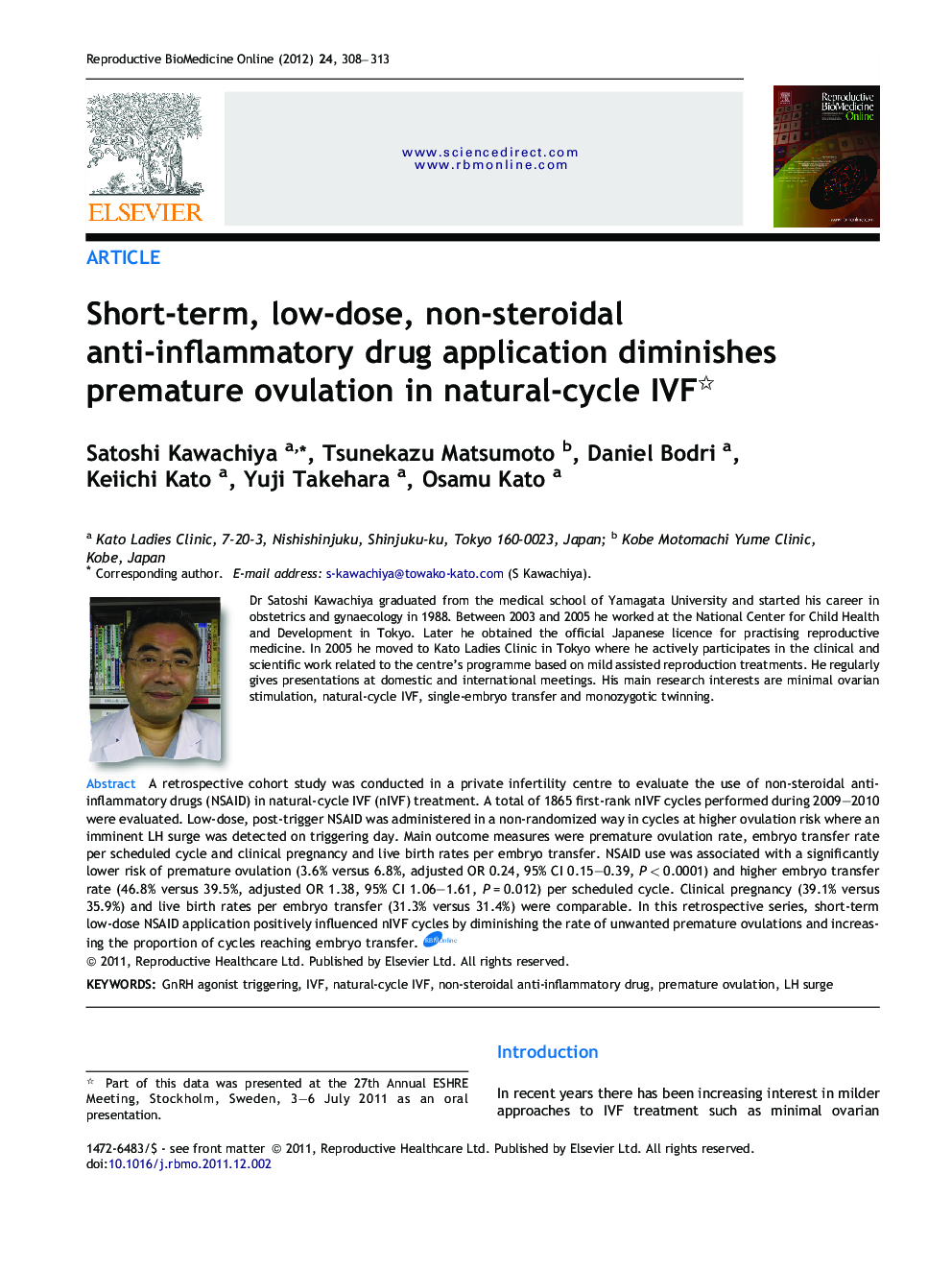| کد مقاله | کد نشریه | سال انتشار | مقاله انگلیسی | نسخه تمام متن |
|---|---|---|---|---|
| 3971051 | 1256748 | 2012 | 6 صفحه PDF | دانلود رایگان |

A retrospective cohort study was conducted in a private infertility centre to evaluate the use of non-steroidal anti-inflammatory drugs (NSAID) in natural-cycle IVF (nIVF) treatment. A total of 1865 first-rank nIVF cycles performed during 2009–2010 were evaluated. Low-dose, post-trigger NSAID was administered in a non-randomized way in cycles at higher ovulation risk where an imminent LH surge was detected on triggering day. Main outcome measures were premature ovulation rate, embryo transfer rate per scheduled cycle and clinical pregnancy and live birth rates per embryo transfer. NSAID use was associated with a significantly lower risk of premature ovulation (3.6% versus 6.8%, adjusted OR 0.24, 95% CI 0.15–0.39, P < 0.0001) and higher embryo transfer rate (46.8% versus 39.5%, adjusted OR 1.38, 95% CI 1.06–1.61, P = 0.012) per scheduled cycle. Clinical pregnancy (39.1% versus 35.9%) and live birth rates per embryo transfer (31.3% versus 31.4%) were comparable. In this retrospective series, short-term low-dose NSAID application positively influenced nIVF cycles by diminishing the rate of unwanted premature ovulations and increasing the proportion of cycles reaching embryo transfer.In recent years, increasing interest has emerged in milder approaches to IVF treatment such as natural-cycle IVF (nIVF), which could decrease the physical burden and psychological distress for patients, increase patient convenience and reduce treatment costs. The main drawback of nIVF is its low per cycle efficiency, which is partly related to high cancellation rates due to premature LH surge and premature ovulation detected at the time of oocyte retrieval. Non-steroidal anti-inflammatory drugs (NSAID) could efficiently delay or even prevent follicular rupture and they were recently proposed as a way to control spontaneous ovulations during nIVF. A retrospective cohort study was conducted in a Japanese private infertility centre to evaluate the use of NSAID in a total of 1865 nIVF cycles during 2009–2010. The NSAID use was associated with a significantly lower risk of premature ovulation (3.6% versus 6.8%, adjusted odds ratio 0.24) and higher embryo transfer (46.8% versus 39.5%, adjusted odds ratio 1.38). In our retrospective series, short-term, low-dose NSAID application positively influenced nIVF outcome by diminishing the rate of unwanted premature ovulation and increasing the proportion of cycles reaching embryo transfer. A large randomized clinical trial is still warranted to evaluate more precisely the effect of low-dose NSAID administration in nIVF cycles.
Journal: Reproductive BioMedicine Online - Volume 24, Issue 3, March 2012, Pages 308–313